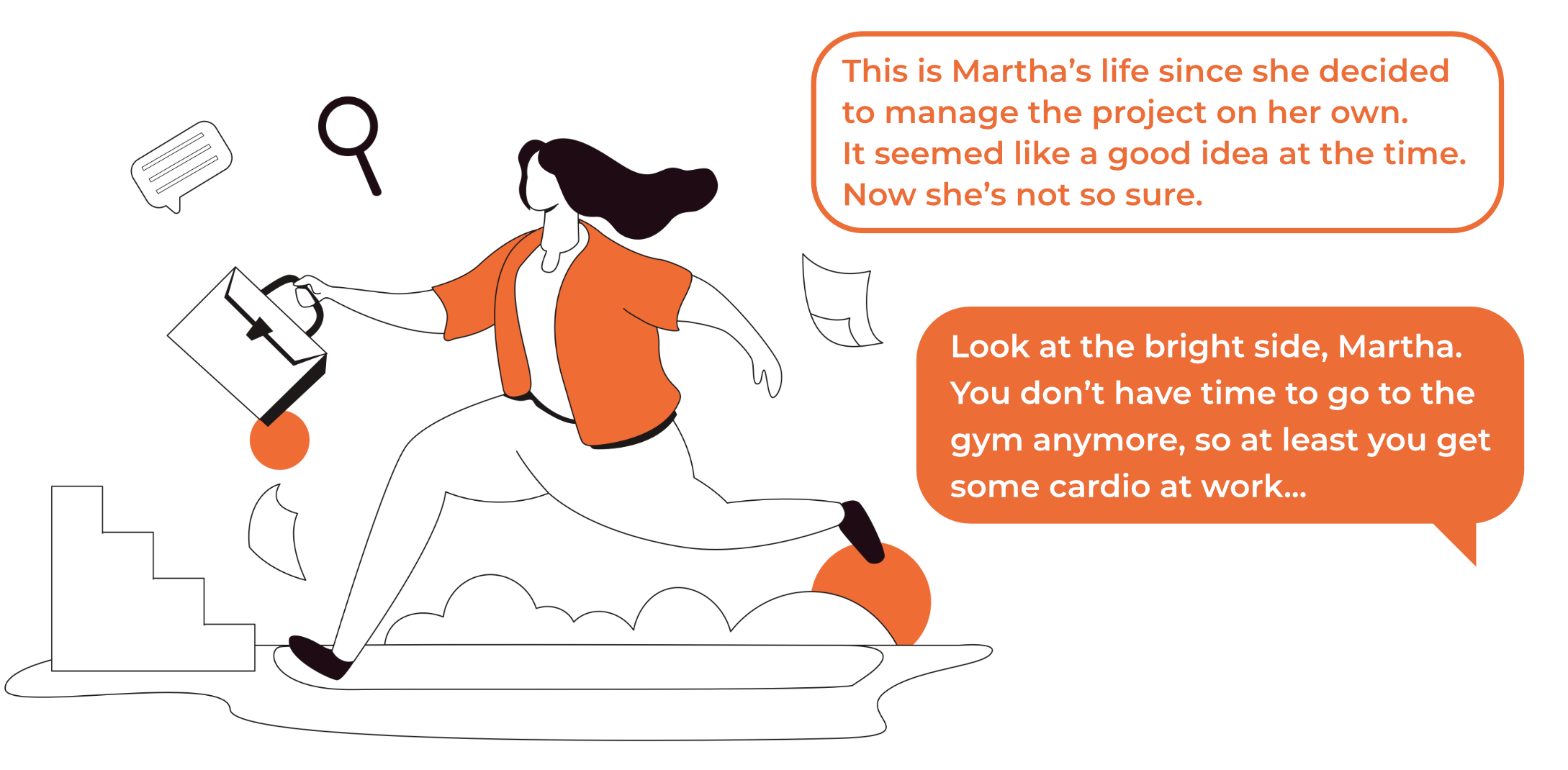
Can you manage an EU project on your own?
Congratulations, you’ve just won a coveted EU grant! Now, bombarded with emails, deadlines and questions, you’re reminded of all your obligations to the EU and wonder “can I manage this EU project on my own?”
The simple answer is yes! But another question is, should you?
Managing an EU-funded project on your own is like going to court without a lawyer. Of course, you just might win, but it’ll probably be much easier and faster if you went with a pro!
Are you ready for EU bureaucracy and paperwork?
Being awarded an EU grant is an amazing opportunity and can be a real game changer for small innovative companies. It shows that the company is serious, has potential and could even have a leverage effect for potential partners and/or investors.
However, the administrative burden that comes along with such prestigious grants is often overlooked and can sometimes cause problems further down the line and even result in the termination of the grant. EU guidelines and procedures are complex, their terminology is similar yet slightly different to what we’re accustomed to and their methodology in terms of calculations and determination of eligible costs is sometimes counterintuitive. On top of this, you are charged with finding a suitable auditor to make sure you’ve got it right AND the EU can also appoint their own up to two years after the project ends. If they find too many irregularities, they might ask you to return the grant you just received.
So how can you prevent this from happening?
Proper prior preparation
There’s a saying in English that goes “Proper prior preparation, prevents piss-poor performances” and this statement couldn’t be truer when it comes to managing an EU grant.
From a technical point of view, you should obviously make sure that you respect the deadlines you outlined when it comes to the deliverables that are due. Make sure they are feasible for you before signing your grant and always let your Project Officer know if there are any delays.
From an administrative point of view, here’s a quick checklist of a few things you should do:
- Read the Annotated Grant Agreement (a 300-page explanatory guide on the rules the EC have fixed in your grant agreement).
- Ensure you have all the necessary policies and procedures in place to make the end-of-project audit easier.
- Check your accounting system to make sure you follow all EU project expenses separately.
- Implement a time-recording system that meets EU requirements.
- Ensure you know what the eligible costs in your project are and how to calculate personnel costs.
Once you’ve done all these things, ask yourself these three questions:
- Do I know what ‘best value for money’ means?
- Do I know the difference between purchase costs and subcontracting costs?
- Do I know how to calculate personnel costs using EU methodology to calculate the daily rate and applying the double ceilings?
If you are unsure of any of these topics and do not have the time to read a 300-page document to understand the rules, don’t worry, we can help you! We have been working with EU projects for 15 years and feel like we’ve seen almost everything, but maybe you can surprise us. Having a dedicated team to assist you throughout this process can both save you time AND money.
Would you like to get it right with Polite? We’re all ears at hello@getpolite.eu